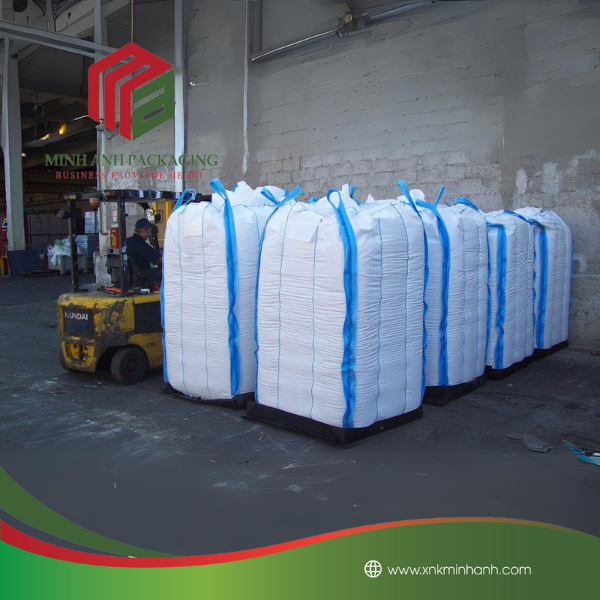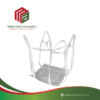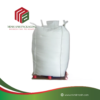How FIBC Bags Enhance Safety in Material Handling
One of the key ways in which FIBC bags enhance safety in material handling is through their robust construction. These bags are made from durable woven polypropylene fabric that can withstand heavy loads and harsh environmental conditions. This strength and durability reduce the risk of accidents and product damage during transportation and storage, thus ensuring the safety of both workers and the goods being handled.
Flexible Intermediate Bulk Containers (FIBC), commonly known as big bags, bulk bags, or jumbo bags, have become an integral part of the material handling industry due to their ability to enhance safety in the transportation and storage of various goods. FIBC bags are designed to meet the specific needs of different industries, including agriculture, construction, chemical, food, and pharmaceuticals. Their versatility and safety features make them a preferred choice for businesses looking to improve their material handling processes.

One of the key ways in which FIBC bags enhance safety in material handling is through their robust construction. These bags are made from durable woven polypropylene fabric that can withstand heavy loads and harsh environmental conditions. This strength and durability reduce the risk of accidents and product damage during transportation and storage, thus ensuring the safety of both workers and the goods being handled.
Furthermore, FIBC bags are designed to be easily handled using forklifts, cranes, or other material handling equipment. This minimizes the need for manual labor and reduces the risk of injuries associated with lifting and moving heavy loads. The use of FIBC bags also promotes efficient material handling practices, as they can be quickly loaded onto trucks or stacked in warehouses, saving time and labor while maintaining safety standards.

In addition to their physical strength, FIBC bags are equipped with various safety features to prevent accidents and ensure secure containment of goods. For instance, many FIBC bags come with reinforced lifting loops that are carefully stitched and tested to bear the weight of the bag and its contents. This prevents the risk of the bag tearing or falling apart during lifting, which could lead to serious accidents in the workplace.
Moreover, FIBC bags can be customized with additional safety features such as dust-proof seams, UV protection, and electrostatic protection, depending on the specific requirements of the goods being transported or stored. These features help maintain the integrity of the goods and protect them from external elements, ensuring that they reach their destination in optimal condition while adhering to safety regulations.
Another important aspect of FIBC bags that enhances safety in material handling is their ability to facilitate proper storage and containment of hazardous materials. Many FIBC bags are designed to meet strict industry standards for handling dangerous goods, such as chemicals, powders, or pharmaceutical products. They are equipped with specialized liners and closures to prevent leakage or contamination, reducing the risk of exposure to harmful substances and ensuring compliance with safety regulations.

Furthermore, FIBC bags are designed to be easily stackable, allowing for efficient use of storage space while maintaining stability and preventing accidents caused by unstable piles of goods. This feature is particularly important in warehouses and manufacturing facilities where space optimization is crucial for maintaining a safe working environment.
The use of FIBC bags also promotes environmental safety by reducing the need for disposable packaging materials such as cardboard boxes or wooden crates. This not only minimizes waste but also eliminates potential hazards associated with handling and disposing of traditional packaging materials. Additionally, many FIBC bags are reusable and recyclable, further contributing to sustainable material handling practices.

In conclusion, FIBC bags play a crucial role in enhancing safety in material handling across various industries. Their robust construction, specialized safety features, and ability to facilitate proper storage of goods make them an ideal choice for businesses looking to prioritize safety and efficiency in their material handling processes. By investing in FIBC bags, companies can minimize the risk of accidents, protect their workers and products, and contribute to a safer and more sustainable working environment.
Hãy là người đầu tiên nhận xét “How FIBC Bags Enhance Safety in Material Handling” Hủy
Sản phẩm tương tự
Tin Tức Bao Bì
Tin Tức Bao Bì
Tin Tức Bao Bì
Tin Tức Bao Bì
Tin Tức Bao Bì
Tin Tức Bao Bì














Đánh giá
Chưa có đánh giá nào.